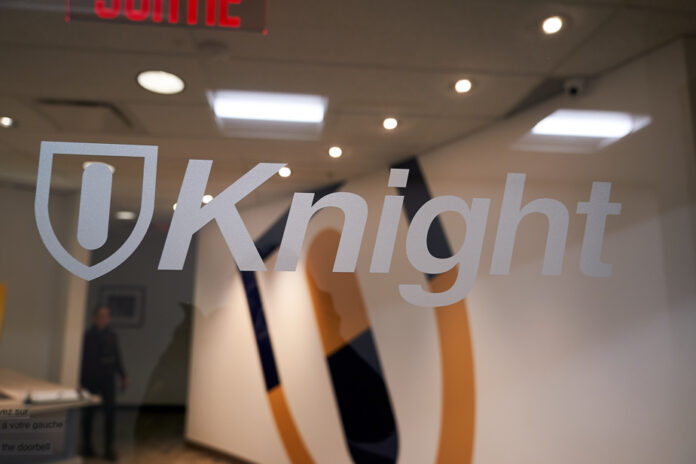While investors shun Thérapeutique Knight, an asset manager from Saint-Bruno-de-Montarville remains confident and becomes the largest institutional shareholder of this Montreal pharmaceutical company.
The Medici firm last month increased its stake in Knight to now hold more than 10% of the shares. Medici entered May with 11.5 million shares of Knight in its portfolio, according to a document filed with regulators.
At current prices, this stake in Knight is valued at $55 million.
Medici is not seeking a seat on the board. “We appreciate what leaders do. We don’t want to take an activist stance,” comments portfolio manager Pierre-Olivier Langevin.
While the founder and executive chairman of the board, Jonathan Goodman, remains Knight’s largest shareholder with around 20% of the shares, Medici has just passed businessman George Armoyan in second place in the shareholding.
Knight’s stock continues to trade near its floor price. The stock closed Wednesday’s session at $4.74 on the Toronto Stock Exchange. It was worth over $10 six years ago.
The pressure on the stock increased in late March after the release of year-end results. Faced with the stock’s weakness, Knight massively repurchased shares for cancellation throughout the month of April.
Medici makes no secret that Knight’s stock market performance is “severely testing” his patience. But the asset manager says to stay the course because the growth of revenues and profits is there. “The stock’s valuation multiple doesn’t reflect that,” says Pierre-Olivier Langevin.
He points out that Knight has been showing double-digit growth for several quarters. Revenues grew 21% in 2022 while operating profit rose around 50%.
“The valuation sits at approximately 5x operating profit excluding cash and superfluous assets on the balance sheet. It’s very weak. Private companies get more generous ratings than that,” says Pierre-Olivier Langevin.
According to him, the stock’s recent decline seems linked to the market’s disappointment with the financial projections released by management for 2023.
Medici notes that Knight executives have historically been very cautious when giving their guidance at the start of the year.
For example, in 2022, Medici points out that Knight delivered revenue growth of 21%, whereas management had presented a growth forecast of only 8% 12 months earlier. Medici believes it is likely that the situation will repeat itself in 2023 and that the forecasts presented prove to be too cautious.
Since 2019, revenues have grown from 48 million to almost 300 million. Adjusted operating profit for its part increased from 7 million to 55 million during this period. Meanwhile, Medici notes that Knight has repurchased about 18% of its own shares at a price below its intrinsic value.
Given its financial situation and the profits it generates, Knight should also be able to acquire other mature products or rivals, according to Medici.
Poor results over an extended period or a loss of hope that capital can be deployed over a reasonable horizon are the elements that would wear out Medici’s patience.
On Bay Street, 4 out of 7 analysts say to buy. The 12-month average target is $6, suggesting a potential return of 25% off the current price.
Prior to founding Knight in 2014, Jonathan Goodman co-founded and led Paladin Laboratories, a pharmaceutical company acquired by Endo Health in 2013 for $3.2 billion.
Investors’ continued disinterest in Knight can be explained in several ways, according to Pierre-Olivier Langevin. Knight’s significant presence in Latin America, where political and currency instability may scare off some investors. There is also still a lot of capital on the balance sheet and some investors might not like it.
Pierre-Olivier Langevin also notes that Knight stands out compared to other pharmaceutical companies. Several companies in the sector have poor balance sheets and he believes Knight may be suffering badly. We can think in particular of the debacles of Valeant, Concordia Healthcare and Endo.















